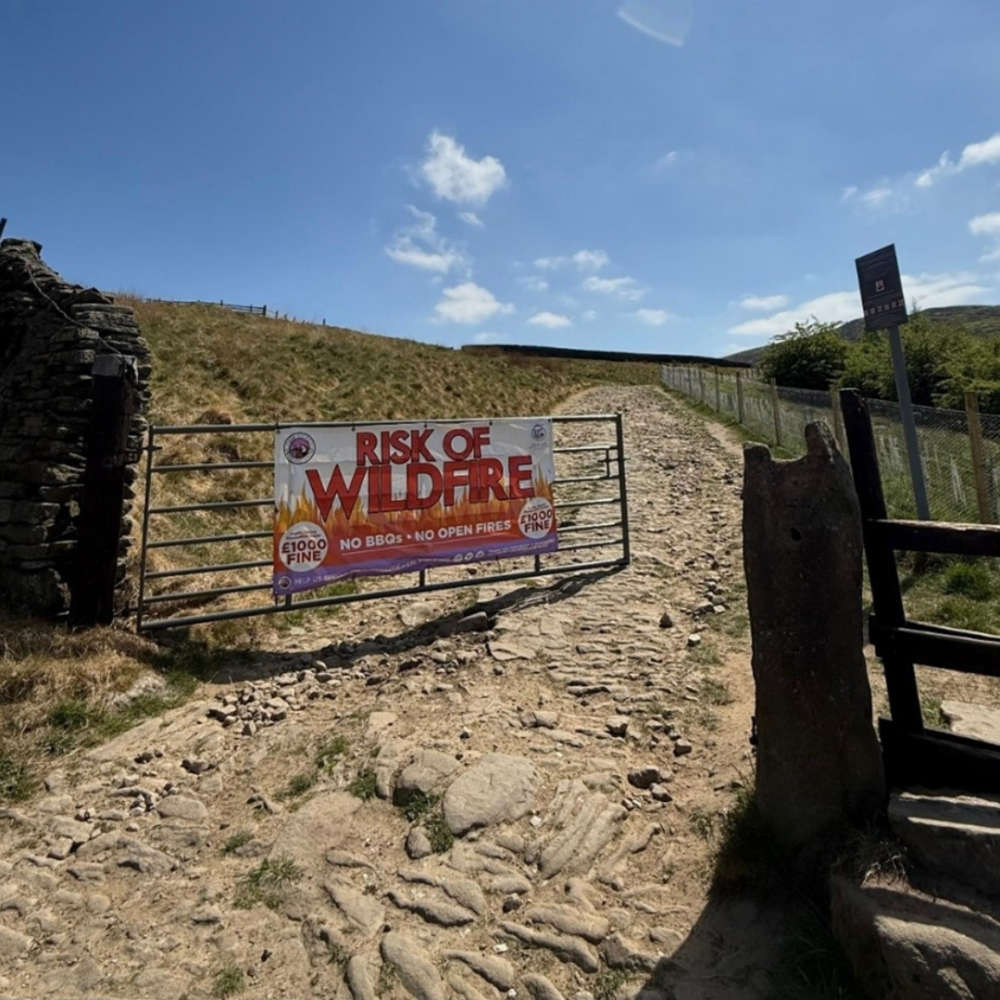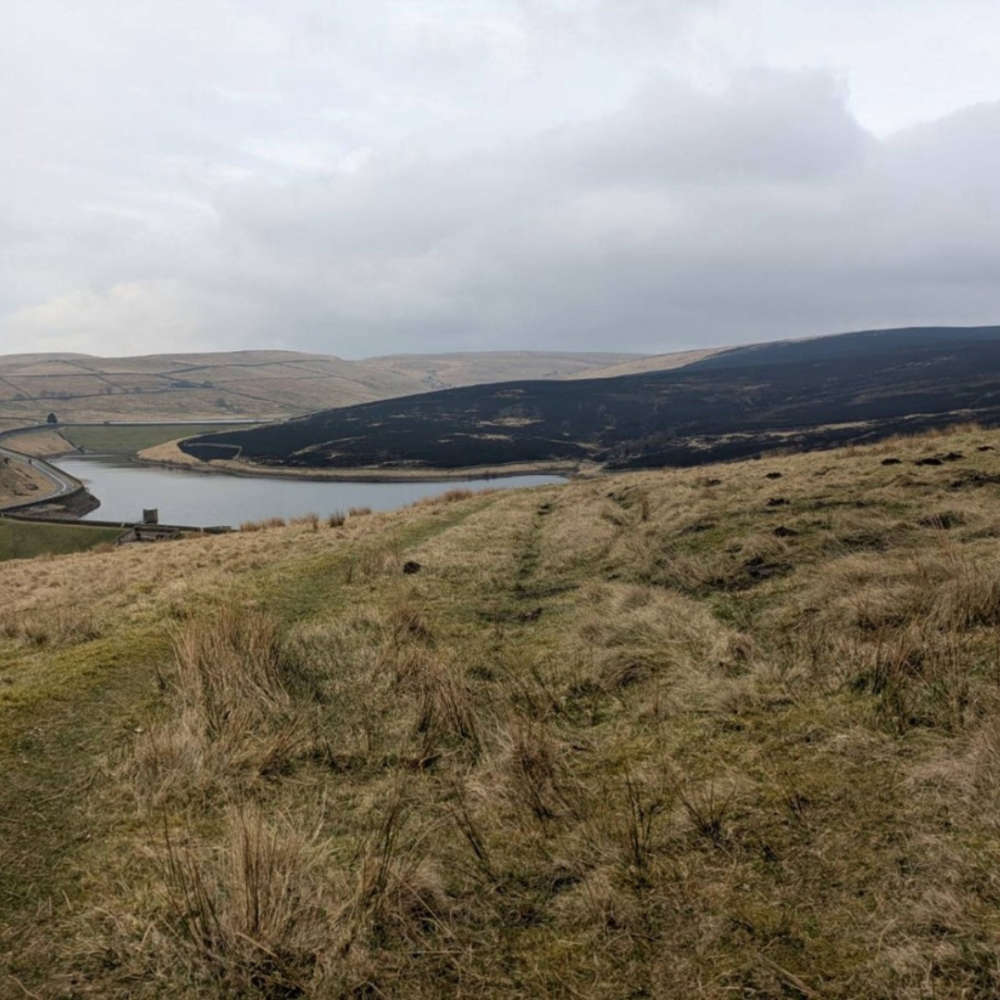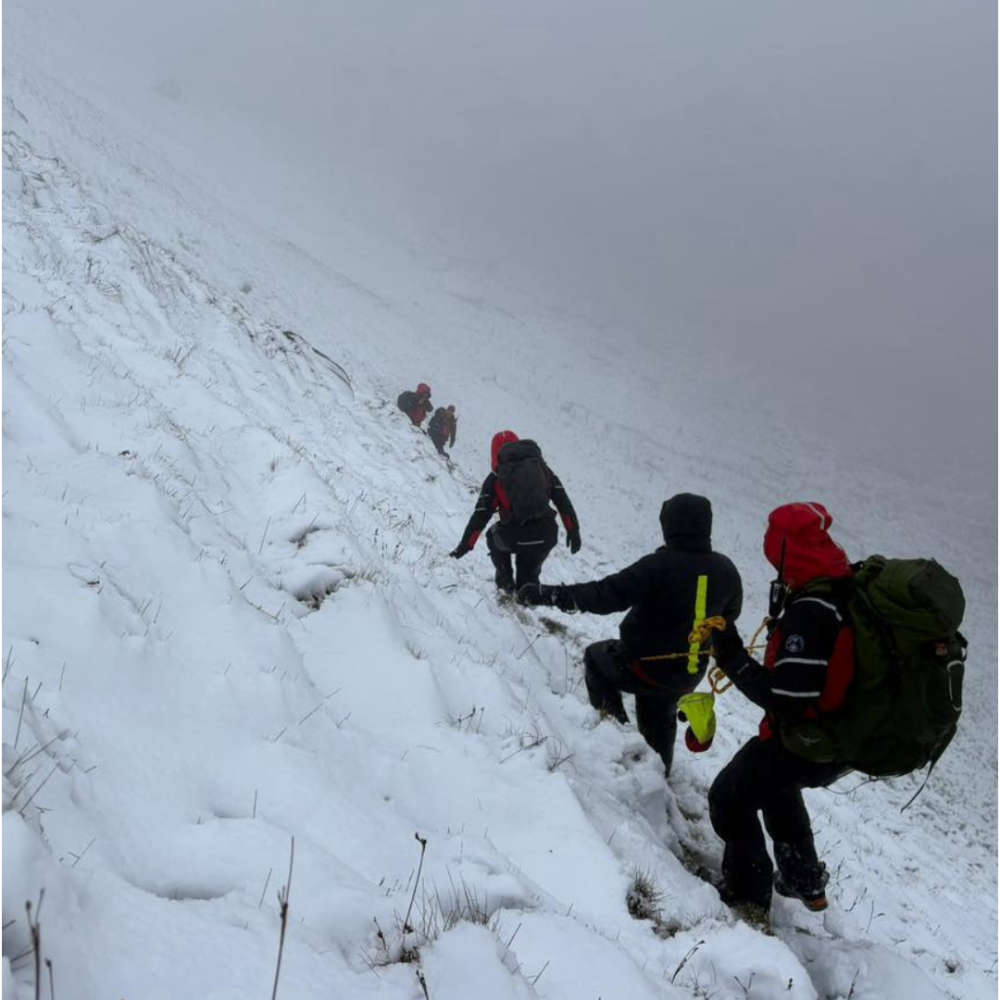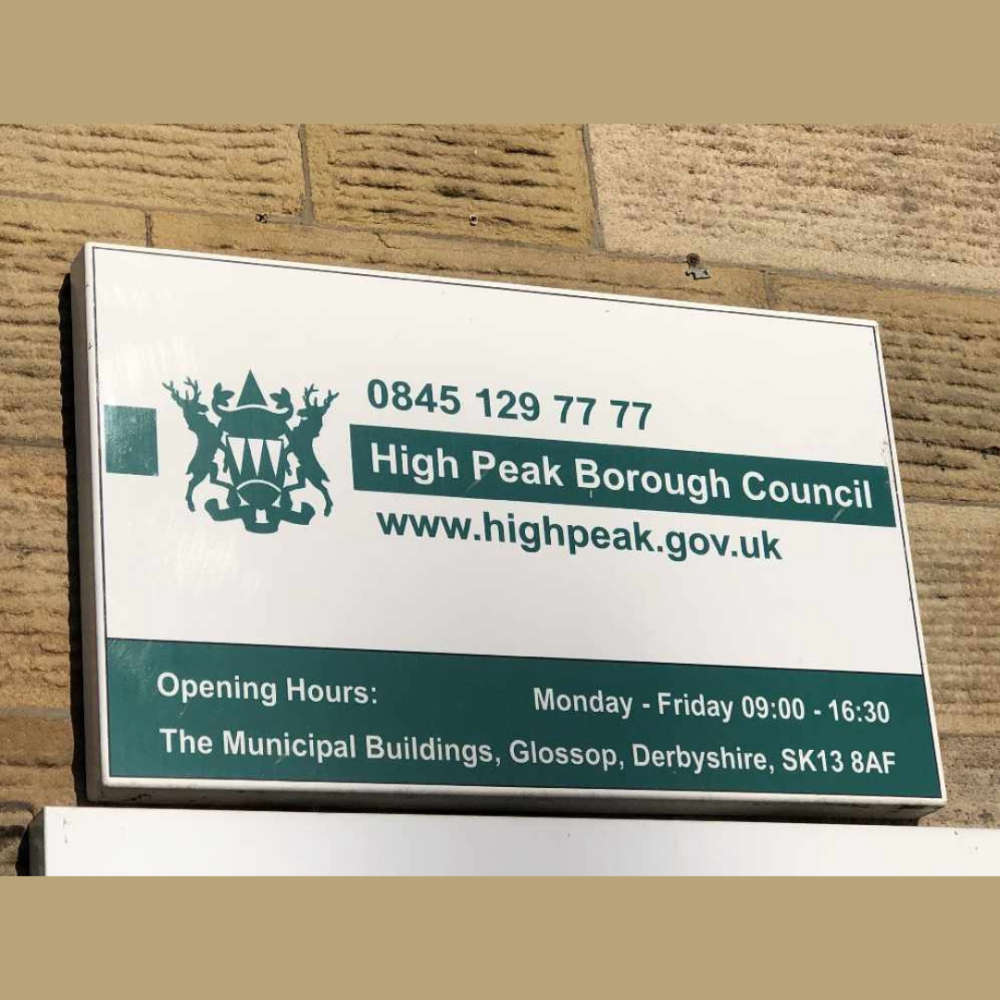
"Don't just blame visitors for Peak District Wildfires."
This is the message from the campaign group ‘Right to Roam’, who are criticising wildfire measures that target visitors, not root causes.
A new Public Space Protection Order (PSPO) aimed at tackling wildfires in the High Peak area of the Peak District has sparked concern from the campaigners, who argue the policy unfairly targets visitors while ignoring broader causes of fire risk. They say it fails to address irresponsible behaviour at its root and risks excluding people from the national park.
High Peak Borough Council is currently consulting on a PSPO which would ban items such as disposable barbecues, camping stoves, fireworks, and sky lanterns in open spaces—citing public behaviour as a key wildfire threat. The consultation closes on 26 May 2025, and campaigners are urging nature lovers and everyday visitors to respond before the deadline.
The Northwest branch of the Right to Roam campaign welcomes the acknowledgment of increased wildfire risks in a warming climate but argues that the proposed PSPO disproportionately blames individuals enjoying the outdoors, while overlooking large-scale land management practices such as grouse moor burning. These activities, often conducted on artificially-dried peat, also carry significant fire risks—yet landowners and their agents would remain exempt under the order.
Campaigners emphasise that effective wildfire prevention must take a broader view. The Peak District welcomed over 33 million visitors in 2022, rising to 34 million in 20231 —people who support the local economy, connect with nature, and often act as the first line of defence in spotting fires and promoting responsible behaviour.
The draft PSPO states: “If any person…has in their possession any item which a constable or authorised person has reasonable grounds to believe has been, is being, or is likely to be used in conjunction with the Prohibited Activities, they shall…extinguish and/or surrender the item.” Campaigners argue that vague and subjective terms like “reasonable grounds” risk creating a hostile environment—particularly for young people and those from diverse urban backgrounds who may be unfamiliar with countryside codes, and who are more likely to face disproportionate enforcement.
Campaigners also stress that peatland restoration should be central to wildfire prevention. Much of the Peak District’s uplands are naturally wet blanket bogs, yet many have been drained, making them more flammable. Healthy peatlands capture carbon, hold water, and support biodiversity, including red-listed species like the endangered curlew. When degraded and burned, they release carbon and dry out—escalating both climate change and fire risk.
While the PSPO would ban camping stoves, it still permits the managed burning and drainage of peatlands for grouse shooting— missing this broader climate emergency context.
“We agree that wildfire risk is rising—but this approach sends the wrong message,” said a spokesperson from Right to Roam NW. “Visitors should be welcomed, not scapegoated. The public can be part of the solution, especially as eyes and ears on the ground in a landscape with a stretched workforce. We need consistent, national-level messaging and emergency measures that apply to all ignition sources—whether it’s a BBQ or heather-burning over dry peat.”
“How can we blame ordinary people for nature’s degradation,” added another campaigner, “when government at all levels continues to promote destruction over protection—through policies like the Planning Reform Bill, or the failure of local authorities to act against landowners degrading landscapes through peat burning?”
Campaigners call for a nationwide nature protection strategy that includes and empowers all citizens. Through education and inclusive access, they argue, people can become protectors of the natural world—not threats to it.
Recent surveys have debunked the myth of a rural–urban divide when it comes to support for a national Right to Roam3. Access campaigners argue that everyone deserves responsible access to nature—whether visiting, living on, or managing the land. The responsibility to protect our landscapes is shared. And if they burn, we all lose.
The draft PSPO:
Online survey to respond to PSPO:
Photo below: Burnt moorland in the Peak District, taken by Right to Roam NW member



 Derbyshire Police to launch new ‘behind the scenes’ podcast
Derbyshire Police to launch new ‘behind the scenes’ podcast
 Glossop Mountain Rescue battles storm to rescue stranded walker
Glossop Mountain Rescue battles storm to rescue stranded walker
 Glossop council tenants are invited to have their say
Glossop council tenants are invited to have their say
 Glossopdale Action for Sustainable Travel help launch new car club
Glossopdale Action for Sustainable Travel help launch new car club


